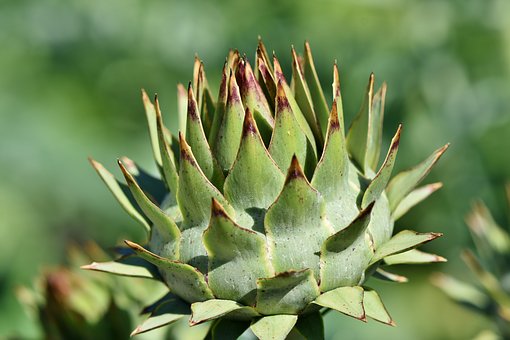Artichoke Leaf Extract Reduces Mild Dyspepsia in an Open Study
© Authored by PubMed
© HealthyMuslim. See Terms and Conditions
Copy Link
Email
Print

 The large thistle-like plant is native to the regions of southern Europe, North Africa, and the Canary Islands. It is said that in about 800 CE, two groups of Moors were responsible for cultivation of the artichoke in Sicily and Spain. The word apparently derives from Arabic rather than Greek, suggesting the Moors may have cultivated the vegetable first. The leaves of the plant are used medicinally. However, the roots and the immature flower heads may also contain beneficial compounds. The globe artichoke is high in Vitamin C, folic acid, and potassium. As it also stimulates bile, it is not recommended for those who suffer from gallstones. Dyspepsia is a term which includes a group of symptoms that come from a problem in your upper gut. The gut or 'gastrointestinal tract' is the tube that starts at the mouth, and ends at the anus. The upper gut includes the oesophagus, stomach, and duodenum.
The large thistle-like plant is native to the regions of southern Europe, North Africa, and the Canary Islands. It is said that in about 800 CE, two groups of Moors were responsible for cultivation of the artichoke in Sicily and Spain. The word apparently derives from Arabic rather than Greek, suggesting the Moors may have cultivated the vegetable first. The leaves of the plant are used medicinally. However, the roots and the immature flower heads may also contain beneficial compounds. The globe artichoke is high in Vitamin C, folic acid, and potassium. As it also stimulates bile, it is not recommended for those who suffer from gallstones. Dyspepsia is a term which includes a group of symptoms that come from a problem in your upper gut. The gut or 'gastrointestinal tract' is the tube that starts at the mouth, and ends at the anus. The upper gut includes the oesophagus, stomach, and duodenum. Marakis G, Walker AF, Middleton RW, Booth JC, Wright J, Pike DJ. Artichoke leaf extract reduces mild dyspepsia in an open study. Phytomedicine. 2002 Dec;9(8):694-9.
A recent post-marketing study indicated that high doses of standardised artichoke leaf extract (ALE) may reduce symptoms of dyspepsia. To substantial these findings, this study investigated the efficacy of a low-dose ALE on amelioration of dyspeptic symptoms and improvement of quality of life. The study was an open, dose-ranging postal study. Healthy patients with self-reported dyspepsia were recruited through the media. The Nepean dyspepsia Index and the State-Trait anxiety Inventory were completed at baseline and after 2 months of treatment with ALE, which was randomly allocated to volunteers as 320 or 640 mg daily. Of the 516 participants, 454 completed the study. In both dosage groups, compared with baseline, there was a significant reduction of all dyspeptic symptoms, with an average reduction of 40% in global dyspepsia score. However, there were no differences in the primary outcome measures between the two groups, although relief of state anxiety, a secondary outcome, was greater with the higher dosage (P = 0.03). Health-related quality of life was significantly improved in both groups compared with baseline. We conclude that ALE shows promise to ameliorate upper gastro-intestinal symptoms and improve quality of life in otherwise healthy subjects suffering from dyspepsia.
Link to this article: Show: HTML Link • Full Link • Short Link
Share or Bookmark this page: You will need to have an account with the selected service in order to post links or bookmark this page.





|
Related Articles:
- Investigation of Lipids Profiles of Nigella, Lupin and Artichoke Seed Oils to Be Used as Healthy Oils
- Artichoke Leaf Extract Reduces Symptoms of Irritable Bowel Syndrome and Improves Quality of Life Dyspepsia Sufferers
- Phenolic Compounds From the Leaf Extract of Artichoke (Cynara Scolymus L.) and Their Antimicrobial Activities
- Artichoke Leaf Extract Reduces Mild Dyspepsia in an Open Study
- Artichokes Are Excellent for Digestive Health
You must be registered and logged in to comment.
Most Popular
Latest Articles
Popular Subjects
Health, fitness and longevity
Based upon the principles of health
in the Qur'an and Prophetic Traditions.
HealthyMuslim.Com
There are two bounties in which
most people lose out: good health
and free time. Al-Bukhari.
The information on this site is provided for educational purposes only. It is not intended as a substitute for professional advice of any kind.























